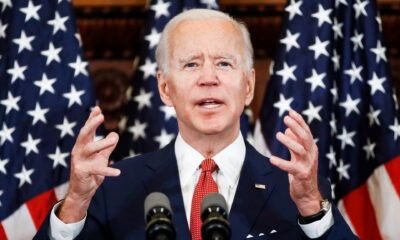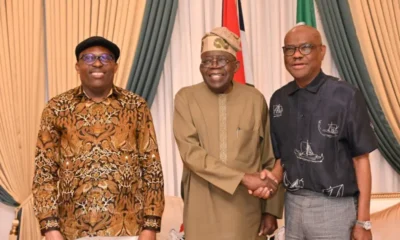Headline
Five Things To Know About US Supreme Court Nominee
Published
3 years agoon
By
Editor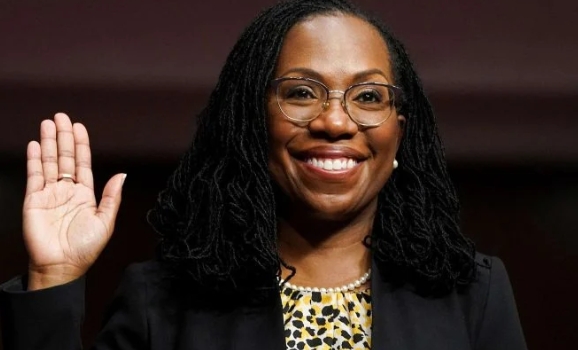
President Biden has chosen Judge Ketanji Brown Jackson as his pick to replace retiring Justice Stephen Breyer on the U.S. Supreme Court — fulfilling his campaign promise of appointing a Black woman to the nation’s highest court.
Biden formally announced Jackson, 51, as his nominee at the White House on Friday afternoon.
“Judge Jackson is an exceptionally qualified nominee as well as a historic nominee,” the White House said in a statement. “And the Senate should move forward with a fair and timely hearing and confirmation.”
Here are 5 things to know about Jackson.
She clerked for Breyer
A graduate of Harvard Law School, Jackson served as a law clerk to three federal judges, including Breyer on the Supreme Court.
As Breyer’s clerk during the court’s 1999-2000 term, Jackson “learned up close how important it is for a Supreme Court Justice to build consensus and speak to a mainstream understanding of the Constitution,” the White House said in its announcement.
According to the Boston Globe, the 83-year-old Breyer considers Jackson a member of his extended “family.”
Confirmed to her current post with bipartisan support
Biden nominated Jackson to the U.S. Court of Appeals for the District of Columbia Circuit last summer, and she was confirmed by the Senate in a 53-44 vote, with Republican Sens. Susan Collins of Maine, Lisa Murkowski of Alaska and Lindsey Graham of South Carolina voting in her favor.
READ ALSO: Biden Nominates First Black Woman On US Supreme Court
But in a tweet early Friday, Graham said that the nomination of Jackson “means the radical Left has won President Biden over yet again.”
Graham had heaped praise on U.S. District Judge J. Michelle Childs, who was speculated to be one of Biden’s leading contenders for the Supreme Court.
“She would be somebody, I think, that could bring the Senate together and probably get more than 60 votes,” Graham said on ABC’s “This Week With George Stephanopoulos” earlier this month. “Anyone else would be problematic.”
Life experiences not race play a role in her work
Born in Washington, D.C., in 1970, Jackson moved to Florida as a young child with her parents, graduates of historically Black colleges and universities who worked as public school teachers.
During her confirmation hearing for the U.S. Court of Appeals, Sen. John Cornyn, R-Texas, asked Jackson how race would affect her job.
“I don’t think that race plays a role in the kind of judge that I have been and would be. I’m doing a certain thing when I get my cases,” Jackson replied. “I’m looking at the arguments, the facts and the law. I’m methodically and intentionally setting aside personal views [and] any other inappropriate considerations, and I would think that race would be the kind of thing that would be inappropriate to inject into my evaluation of a case.”
Jackson also made it clear that she believed her perspective was still crucial to the court.
“I’ve experienced life in perhaps a different way than some of my colleagues because of who I am, and that might be valuable — I hope it would be valuable — if I was confirmed to the court,” she said.
She was a public defender
If confirmed, Jackson would be the first Supreme Court justice since Thurgood Marshall to have represented indigent criminal defendants.
During her April confirmation hearing, Jackson discussed how her experience as a public defender would benefit her approach to cases on the bench.
“One of the things that I do now is I take extra care to communicate with the defendants who come before me in the courtroom,” Jackson said. “I speak to them directly, and not just to their lawyers. I use their names.”
In addition to her public-defender work, Jackson served as vice chairman of the U.S. Sentencing Commission, working to reduce the penalties for crack cocaine offenders.
Ordered Trump’s former counsel to testify in his impeachment inquiry
In her work as a federal judge, one of Jackson’s most prominent rulings was a 2019 decision in which she ordered former Trump White House counsel Don McGahn to testify in the impeachment inquiry against then-President Donald Trump.
McGahn, a key witness in Robert Mueller’s investigation, was called to testify by the House Judiciary Committee to determine if there were grounds for Trump’s impeachment. Trump ordered McGahn not to testify on the grounds that his role as the president’s close adviser had granted him immunity.
In her 118-page decision, Jackson declared that immunity “simply does not exist,” even for the commander in chief.
READ ALSO: JUST IN: Buhari Signs Electoral Act Amendment Bill Into Law
“Presidents are not kings,” she wrote. “This means that they do not have subjects bound by loyalty or blood, whose destiny they are entitled to control.”
She’s related by marriage to Paul Ryan
Jackson met her husband, Patrick Jackson, when the two were at Harvard College. He is a surgeon and they have two daughters.
His twin brother is the brother-in-law of Janna Ryan, wife of former House Speaker Paul Ryan.
“Janna and I are incredibly happy for Ketanji and her entire family,” Ryan tweeted on Friday. “Our politics may differ, but my praise for Ketanji’s intellect, for her character, and for her integrity, is unequivocal.”
You may like


Trump Orders Inquiry Into ‘Conspiracy’ To Hide Biden’s Health Decline


BREAKING: Biden Diagnosed With Aggressive Form Of Cancer


Biden To Honour Messi, Denzel Washington, 17 Others With Top US Award


Biden Announces $160bn Initiative To Aid Developing Nations


Barack Obama, Wife Endorse Kamala Harris For US President


[JUST IN] US Elections 2024: Biden Drops Out Of Presidential Race Amid Pressure
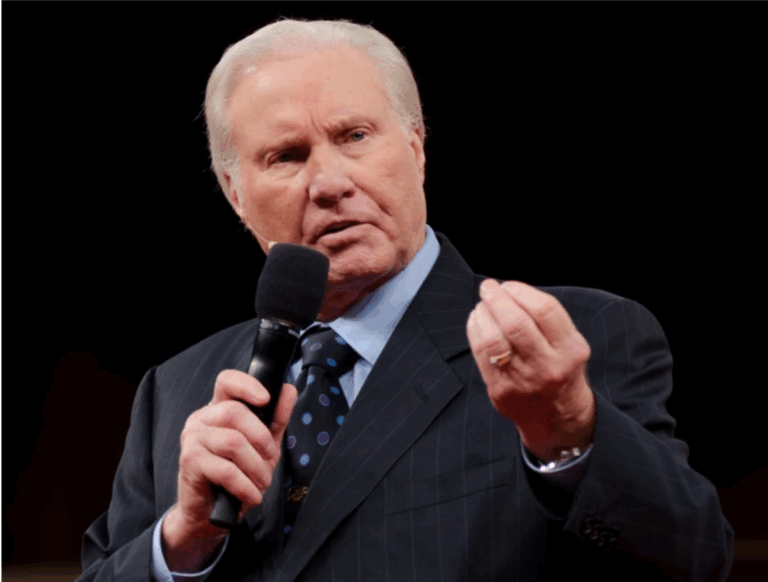
Jimmy Swaggart, the popular Pentecostal preacher and televangelist who garnered national headlines for his extramarital affairs, has died at the age of 90 following a cardiac arrest.
Swaggart’s death was announced in a post on his official Instagram handle on Tuesday.
The post reads, “I have fought a good fight, I have finished my course, I have kept the faith: Henceforth there is laid up for me a crown of righteousness, which the Lord, the righteous judge, shall give me at that day: and not to me only, but unto all them also that love his appearing.”
“2 Timothy 4:7-8. Today, our hearts are heavy as we share that Brother Swaggart has finished his earthly race and entered into the presence of His Saviour, Jesus Christ. Today was the day he has sung about for decades. He met his beloved Saviour and entered the portals of glory. At the same time, we rejoice knowing that we will see him again one day.
READ ALSO:Hot Air Balloon Crashes, Leaves Eight Dead In Brazil
“For over seven decades, Brother Swaggart poured out his life preaching the gospel, singing songs of the faith, and pointing millions to the saving power of Jesus Christ and the Baptism of the Holy Spirit. His voice echoed through nations, his music softened hearts, and his message never changed: Jesus Christ and Him crucified.
“He was not just a preacher—he was a worshiper, a warrior, and a witness to the grace and mercy of God. He was a man whose faith was steadfast and always entered whatever door the Lord opened. And the Lord honoured that faith. Please continue to lift up Sister Frances, Donnie, Debbie, Gabriel, Jill, Jennifer, Clif, Matt, Joanna, Sam, Ryder, Abby, Lola, Harper, Navy, Harrison, Caroline and Mackenzie in your prayers.”
Swaggart was born on March 15, 1935, in Ferriday, Louisiana.
At the age of 8, he had a powerful religious experience that made him feel called to become a preacher.
READ ALSO:US Lawmaker Shot Dead, Another Wounded In Targeted Attack
At 17, he married 15-year-old Frances Anderson in 1952, and they had a son named Donnie.
In 1961, Swaggart was ordained as a minister in the Assemblies of God, the largest Pentecostal denomination in the U.S.
Swaggart is also known for his musical talent.
A cousin of rock ‘n’ roll legend Jerry Lee Lewis, Swaggart had a successful gospel music career, selling more than 17 million albums over the years.
His ministry expanded into media.
READ ALSO:Influencer Shot Dead During Live Stream
In 1969, he started a radio show called “The Campmeeting Hour.”
A year later, he launched The Evangelist, a religious magazine. In 1973, he entered television with a 30-minute program titled “The Jimmy Swaggart Evangelistic Association Presents Jimmy Swaggart.”
He also began airing live recordings of his church services in multiple languages.
In the 1980s, Swaggart led large evangelism crusades in the U.S. and internationally.
One of the biggest was held in October 1987 in Rio de Janeiro, Brazil, drawing an estimated 125,000 attendees.
Headline
Trump Says Will ‘Take A Look’ At Deporting Musk
Published
10 hours agoon
July 1, 2025By
Editor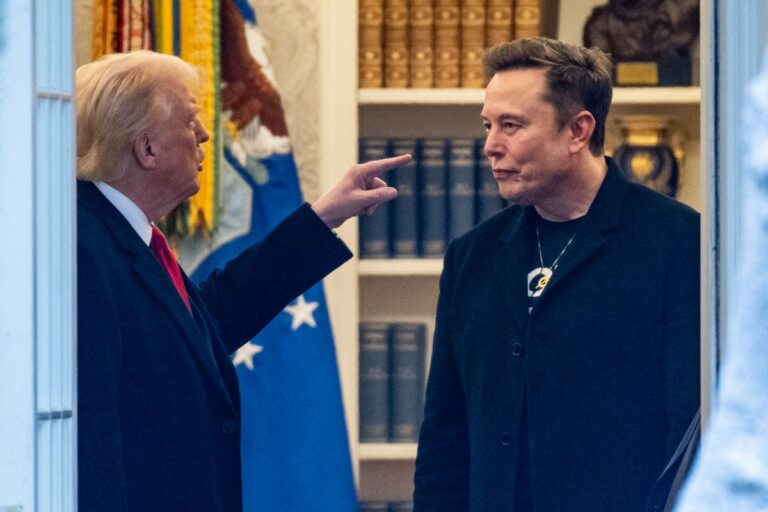
US President Donald Trump said Tuesday he could consider deporting Elon Musk, after the South African-born billionaire slammed his flagship spending bill.
Trump also said the Department of Government Efficiency (DOGE) — which Musk headed before stepping down late May — may train its sights on the Tesla and SpaceX founder’s government subsidies.
“I don’t know. We’ll have to take a look,” Trump told reporters at the White House when asked if he would consider deporting Musk.
“We might have to put DOGE on Elon. You know what DOGE is? DOGE is the monster that might have to go back and eat Elon.”
READ ALSO:Trump Orders Mass Layoffs At Voice Of America, Other US-funded Media
Trump doubled down on the threat when he said he believed Musk was attacking his so-called “One Big Beautiful Bill” because he was annoyed that it had dropped measures to support electric vehicles (EV).
“He’s losing his EV mandate. He’s very upset about things, but you know, he could lose a lot more than that, I can tell you right now. Elon can lose a lot more than that.”
Trump made similar comments on his Truth Social network late Monday, saying that “without subsidies, Elon would probably have to close up shop and head back home to South Africa.”
READ ALSO:Musk Renews Attack On Trump, Says ‘Big, Beautiful Bill Utterly Insane’
Musk, the world’s richest person, was Trump’s biggest donor in the 2024 election and initially maintained a near constant presence at the newly elected president’s side.
They had an acrimonious public falling out this month over the bill and the tycoon has reprised his criticisms in recent days, accusing Republicans of abandoning efforts to place the United States at the front of the EV and clean energy revolution.
Musk has also renewed his calls for the formation of a new political party called the “America Party” if the bill passed.
AFP
Headline
Over 14 Million People Could Fie From US Foreign Aid Cuts – Study
Published
10 hours agoon
July 1, 2025By
Editor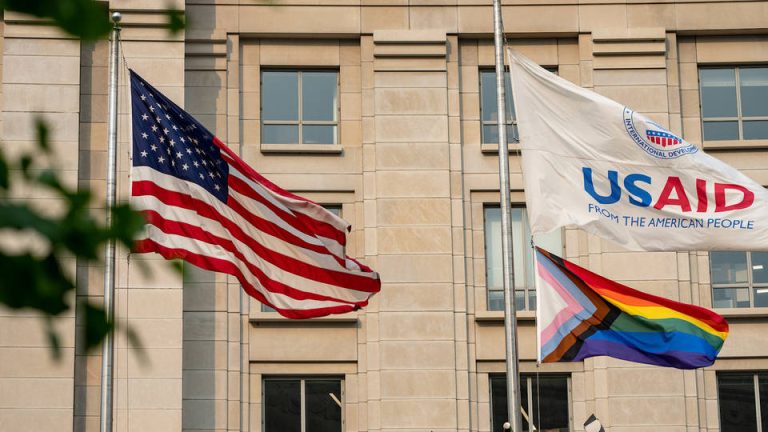
More than 14 million of the world’s most vulnerable people, a third of them small children, could die by 2030 because of the Trump administration’s dismantling of US foreign aid, research projected on Tuesday.
The study in the prestigious Lancet journal was published as world and business leaders gather for a United Nations conference in Spain this week hoping to bolster the reeling aid sector.
The US Agency for International Development (USAID) had provided over 40 percent of global humanitarian funding until Donald Trump returned to the White House in January.
Two weeks later, Trump’s then-close advisor — and world’s richest man — Elon Musk boasted of having put the agency “through the woodchipper”.
The funding cuts “risk abruptly halting — and even reversing — two decades of progress in health among vulnerable populations”, warned study co-author Davide Rasella, a researcher at the Barcelona Institute for Global Health (ISGlobal).
READ ALSO:Trump To Revoke Legal Status For 240,000 Ukrainians Who Fled War With Russia
“For many low- and middle-income countries, the resulting shock would be comparable in scale to a global pandemic or a major armed conflict,” he said in a statement.
Looking back over data from 133 nations, the international team of researchers estimated that USAID funding had prevented 91.8 million deaths in developing countries between 2001 and 2021.
That is more than the estimated number of deaths during World War II, history’s deadliest conflict.
• HIV, malaria to rise –
The researchers also used modelling to project how funding being slashed by 83 percent — the figure announced by the US government earlier this year — could affect death rates.
The cuts could lead to more than 14 million avoidable deaths by 2030, the projections found.
That number included over 4.5 million children under the age of five — or around 700,000 child deaths a year.
READ ALSO:Nigeria’s Economic Growth Too Slow To Reduce Poverty – World Bank
For comparison, around 10 million soldiers are estimated to have been killed during World War I.
Programmes supported by USAID were linked to a 15-percent decrease in deaths from all causes, the researchers determined.
For children under five, the drop in deaths was twice as steep, at 32 percent.
USAID funding was found to be particularly effective at staving off preventable deaths from disease.
There were 65 percent fewer deaths from HIV/AIDS in countries receiving a high level of support compared to those with little or no USAID funding, the study found.
Deaths from malaria and neglected tropical diseases were similarly cut in half.
READ ALSO:Nigerians Suffering From Various Multi-dimensional Poverty, Kukah Laments
Study co-author Francisco Saute of Mozambique’s Manhica Health Research Centre said he had seen on the ground how USAID helped fight diseases such as HIV, malaria and tuberculosis.
“Cutting this funding now not only puts lives at risk — it also undermines critical infrastructure that has taken decades to build,” he stressed.
A recently updated tracker run by disease modeller Brooke Nichols at Boston University estimates that nearly 108,000 adults and more than 224,000 children have already died as a result of the US aid cuts.
That works out to 88 deaths every hour, according to the tracker.
’Time to scale up’ –
After USAID was gutted, several other major donors, including France, Germany and the UK, followed suit in announcing plans to slash their foreign aid budgets.
These aid reductions, particularly in the European Union, could lead to “even more additional deaths in the coming years,” study co-author Caterina Monti of ISGlobal said.
READ ALSO:Why Nigeria’s Poverty Alleviation Programmes Fail – Ex-Rep Member
But the grim projections are based on the current amount of pledged aid, so could rapidly come down if the situation changes, the researchers emphasised.
Dozens of world leaders are meeting in the Spanish city of Seville this week for the biggest aid conference in a decade.
The United States, however, will not attend.
“Now is the time to scale up, not scale back,” Rasella said.
Before its funding was slashed, USAID represented 0.3 percent of all US federal spending.
“US citizens contribute about 17 cents per day to USAID, around $64 per year,” said study co-author James Macinko of the University of California, Los Angeles.
“I think most people would support continued USAID funding if they knew just how effective such a small contribution can be to saving millions of lives.”
AFP
- NYSC Commends Bauchi Govt On Infrastructural Development In Orientation Camp
- Gunmen Kill 10 In Anambra Community
- EFCC Arrests 31 Suspected Internet Fraudsters In Nasarawa
- 30-year-old Man Hacks Mother To Death
- FCT Police Arrest Three Wanted Kidnappers
- Ghana Deports Convicted Nigerian For Smuggling Fake $100,000
- Man Jailed Seven Years For N11.4m Enugu Land Fraud
- Tragedy As 23-year-old Dies By Self-stabbing In Delta
- Police Raid Criminal Hideouts In Delta, Arrest Suspects, Seize Weapons
- Sex Worker Dies After Dispute Over N15,000 Refund In Ondo
About Us
Trending

 News5 days ago
News5 days agoArson: Man To Pay N150m For Burning FRSC Patrol Vehicle In Bauchi

 Politics4 days ago
Politics4 days agoBREAKING: Confusion As APC Chair, Ganduje Resigns

 News2 days ago
News2 days agoAuchi Poly Mass Comm Class of 2006 Holds Maiden Reunion in Benin

 Politics5 days ago
Politics5 days ago‘Peace Has Returned To Rivers’ — Wike, Fubara Speak After Meeting Tinubu

 Headline2 days ago
Headline2 days ago‘They Checked My Instagram’ – Nigerian Lady Breaks Down After Landing In U.S, Denied Entry

 Metro2 days ago
Metro2 days agoBREAKING: Emir’s Palace, NDLEA Office Set Ablaze As Protest Rocks Kwara

 Sports4 days ago
Sports4 days agoChelsea Set To Offload Jackson, Madueke, 8 Others [See list]

 News3 days ago
News3 days agoNSCDC, Immigration, Others: FG Postpones Recruitment, Changes Portal

 Metro4 days ago
Metro4 days agoNAPTIP Declares Speed Darlington Wanted For Tape, Cyberbullying

 News3 days ago
News3 days agoIndecent Dressing Punishable Offence, Attracts N50,000 Fine In Delta — Police Warns




